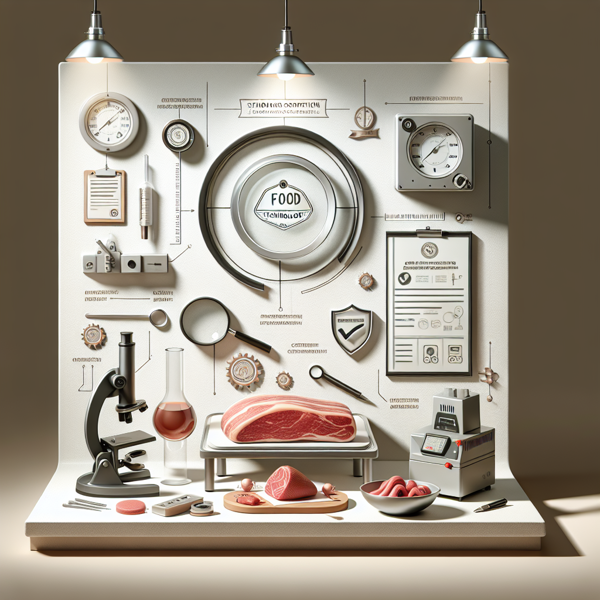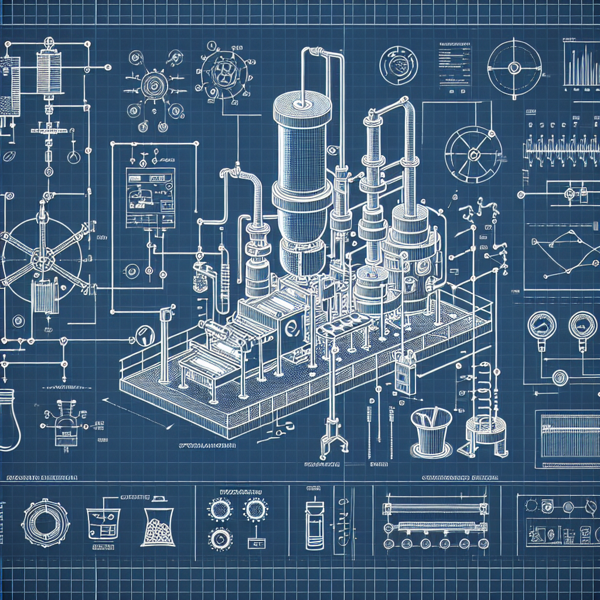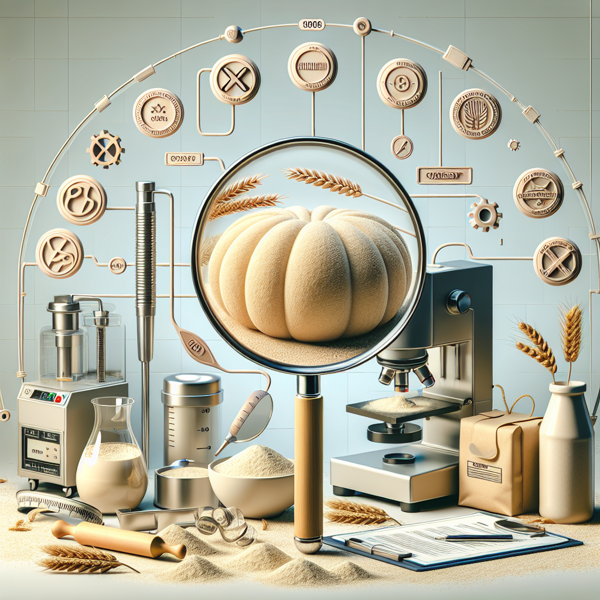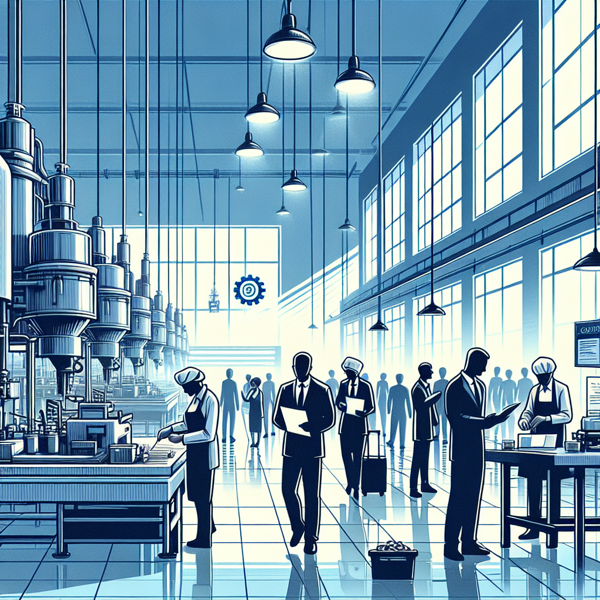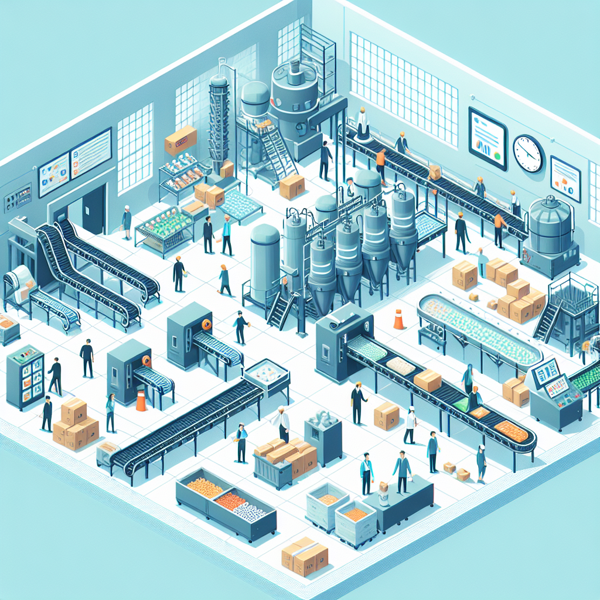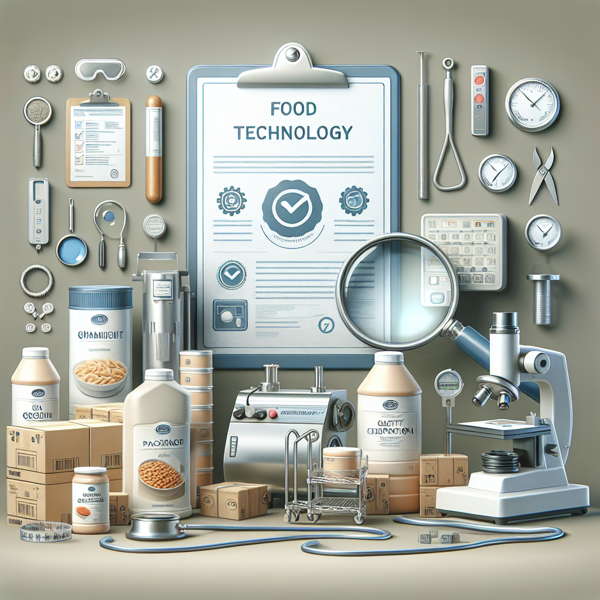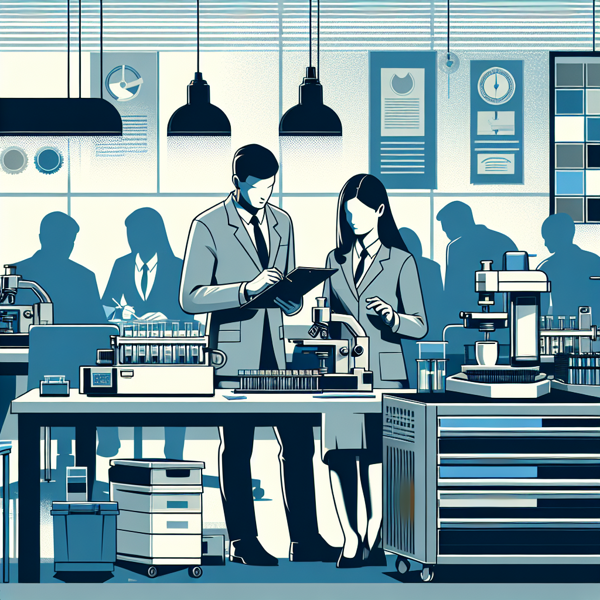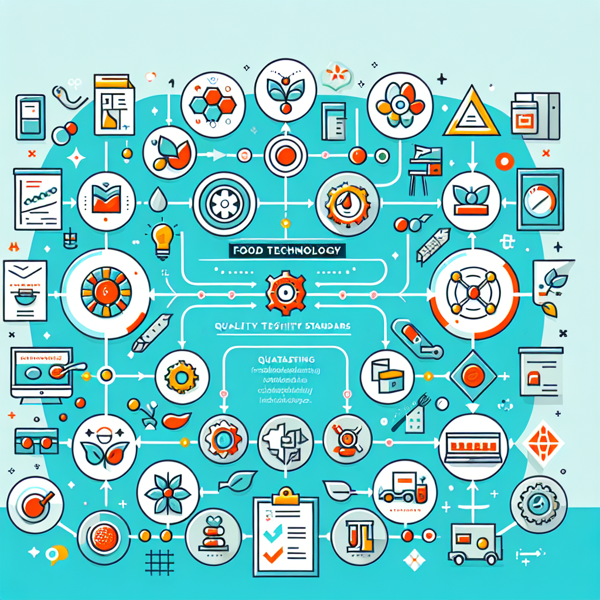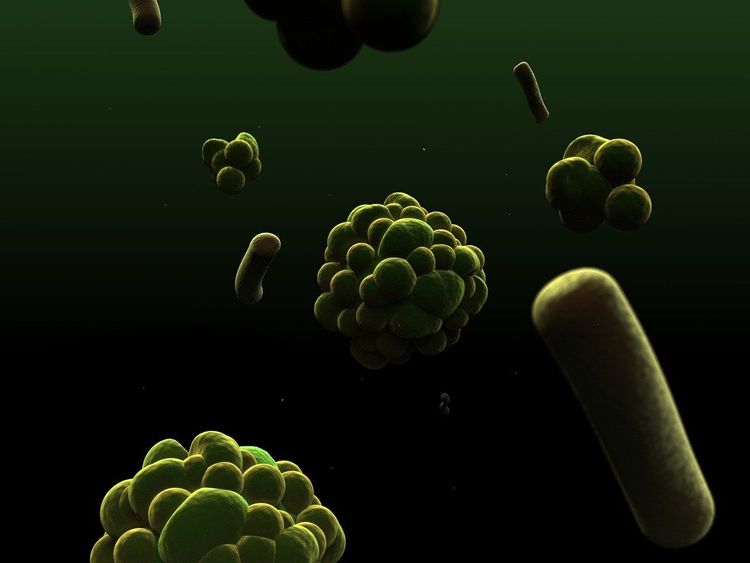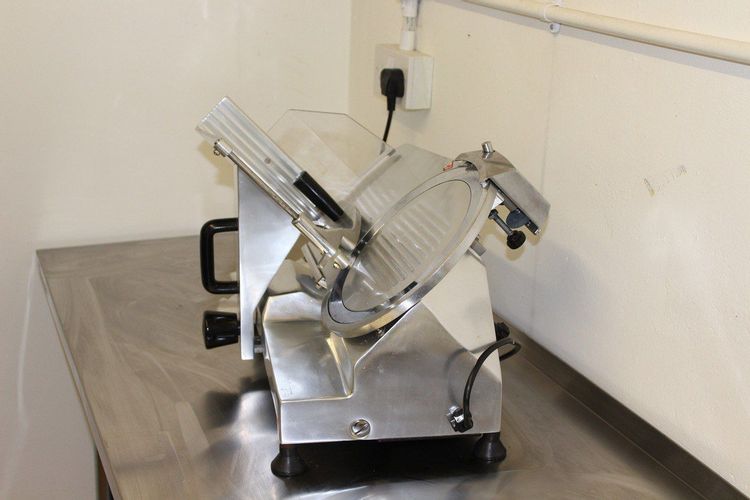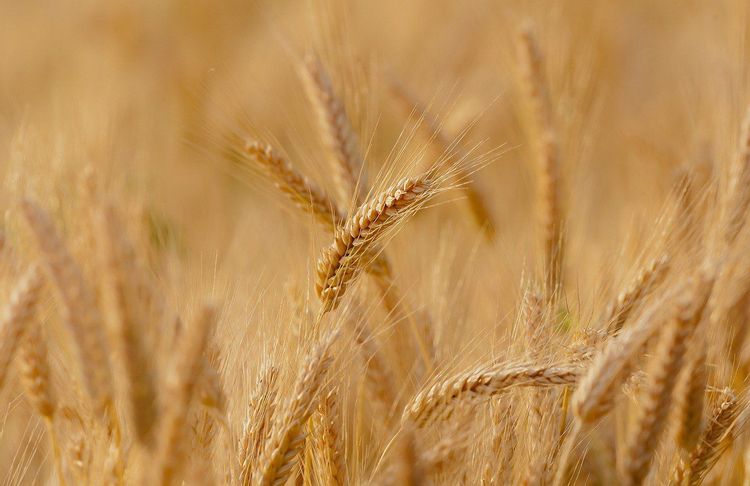Food technology
Discover the latest January 2026 ISO standard affecting the food technology sector: ISO 19643:2026 for the determination of nitrite and nitrate in meat and poultry products via continuous flow analysis. This article examines the scope, technical requirements, and implications for meat processors, quality managers, and laboratories. Learn how this standard enhances testing reliability, supports food safety compliance, and ensures global consistency in analytical methods for nitrite and nitrate content. Essential reading for professionals seeking to stay ahead in regulatory compliance and quality assurance in the meat industry.
Explore the latest food technology standards published in January 2026—part 1 of our comprehensive industry coverage. This article details 5 newly released international standards, providing industry professionals, compliance managers, and researchers with actionable insights on molecular biomarker detection, fatty acid analysis in dairy, dough rheology for wheat flour, and assessment of freshness in meat and fish. Discover key requirements, implementation guidance, and compliance best practices for safer, higher-quality food products. Stay informed on essential updates impacting regulatory compliance and food safety management.
Discover the latest update in food technology standards with ISO 5530-1:2026, released in January 2026. This comprehensive article examines the new international guidance for determining water absorption and rheological properties of wheat flour doughs using a farinograph. Aimed at food industry professionals, quality managers, and researchers, this in-depth coverage highlights the standard's scope, key technical requirements, compliance benefits, and practical implications for flour milling, bakery production, and food testing labs. Stay informed on best practices, compliance timelines, and implementation strategies to enhance product quality and consistency across food technology sectors. Read the article to ensure your organization meets the latest guidelines and remains competitive.
Explore the December 2025 release of four pivotal international food technology standards, covering food toxins, coffee sampling, milk microbiology, and acrylamide detection. These new standards introduce updated analytical methods and procedures crucial for food safety, quality management, and regulatory compliance. Professionals in food manufacturing, laboratory testing, quality assurance, and supply chain management will benefit from in-depth insights into the latest requirements, implementation guidance, and industry impacts. Discover why these standards matter for your business and how they can streamline compliance, improve product integrity, and support global trade.
Stay up to date with the latest international standards for food technology published in November 2025. This comprehensive news article—part one of a two-part series—covers five major standards, including methods for acrylamide determination in coffee, green coffee mass loss, defect detection, safety in food machinery, and sensory evaluation of pasta quality. Learn about the technical requirements, compliance deadlines, industry impact, and practical guidance for implementation. Perfect for professionals in quality management, compliance, engineering, procurement, and food research, this article helps you safeguard product quality and meet evolving regulatory and market expectations. Explore key changes and access full standards through authoritative iTeh Standards links.
Stay ahead in the food sector with this deep dive into two newly published Food Technology standards from November 2025. This article covers ISO 14156:2025, which details state-of-the-art lipid extraction protocols for milk and dairy products, and prEN ISO 12966-4, a major update on gas chromatographic determination of fatty acid methyl esters in animal and vegetable fats and oils. Understand the technical requirements, key changes, compliance considerations, and practical benefits for food quality managers, R&D, compliance, and procurement professionals. Reading this will help you ensure the highest standard in product integrity, boost laboratory reliability, and maintain regulatory compliance. Discover how these standards fit into the wider food analysis landscape—and why timely adoption matters for your business.
This monthly overview examines the standards published in October 2025 for the Food Technology sector. Covering three significant publications, the article analyzes ISO 21846:2025 on composition analysis of vegetable oils, EN 18032:2025 for rapid detection of highly polar pesticides in food, and ISO 21921:2025 outlining specifications for oxidized starch in food applications. Key themes include advanced analytical methods, heightened focus on food authenticity and safety, and the evolution of ingredient quality benchmarks. Professionals in food safety, quality, and procurement will benefit from this retrospective summary, which distills industry trends and compliance considerations while providing direct access to each new standard. Stay informed about the standards shaping food technology and ensure your organization is aligned with the latest best practices.
This monthly overview examines the standards published in September 2025 for the Food technology sector, providing an accessible yet in-depth summary of four significant ISO documents. Key topics include updated specification methods for green coffee (ISO 9116:2025), advanced tea classification by chemical composition (ISO/TS 5617:2025), standardized criteria for Zanthoxyli pericarpium seasoning oil (ISO 18731:2025), and characteristics for fresh and dry baker’s yeast (ISO 23983:2025). The article highlights themes in food ingredient traceability, safety, sensory attributes, and process standardization. Industry professionals, quality managers, compliance officers, and procurement specialists will benefit from practical analysis of compliance considerations and emerging trends, helping organizations prioritize resources and ensure continued excellence in the rapidly evolving Food technology landscape.
This monthly overview examines the standards published in May 2025 for the Food Technology sector, summarizing four significant publications that address water contact materials, rapid analysis technologies for meat, grain sampling practices, and quick-frozen coated aquatic product specifications. Key themes for the month include enhanced analytical accuracy, operational efficiency, and a tightening focus on consumer safety across the food value chain. Professionals in food processing, quality assurance, compliance, and procurement will benefit from this concise retrospective, which explores the broader trends shaping food industry standardization and offers practical recommendations for timely compliance and implementation.
Food technology is an important field that deals with the production, preservation, and distribution of food products. It is a critical aspect of the food industry that ensures the safety, quality, and standardization of food products. International standards play a crucial role in food technology, providing guidelines and regulations for the production and distribution of food products.
Drinks are in our lives every day. The mass consumption of beverages by people causes a high need for industries to increase the level of competitiveness, create new tastes or features. Since this industry is directly responsible for human safety and health, it must be understood that it is clearly standardized by the relevant documents. One of these documents are international standards, which are mainly used by manufacturers or distributors of beverages. Today we will provide a list of the most relevant international standards in the field of beverages.
Food is the most demanded industry among the population of any country. After all, this industry covers the basic physiological needs of any person. Today, food production in some cities has become an art and a significantly influential marketing tool in tourism matters. Product such as chocolate and its derivatives has been a favorite for almost every person since childhood. Nevertheless, it should not be forgotten that, like any other food product, chocolate has certain rules for production and storage, which are regulated by documents such as the following international standards.
The food industry is the segment of the economy that will always be in demand from the consumer, since these goods are classified as essential. Therefore, competition in this segment has always been and will be very high, given the large number of manufacturers of each type of product. Companies that manufacture food products have a lot of external factors that can affect their competitive position in the market. In addition to a large number of players in this market, among other things, the quality and safety of manufactured products play an important role. It is worth noting that the consumer, who has a decisive vote in determining the market leader, pays attention to the safety of the product. If you look at the situation from the side of the buyer, then it becomes obvious that high-quality products that are safe for the human body, which means they have passed all the necessary tests and meet international quality standards, will become more popular. When we say that each product, taking into account its specifics, must be subjected to rigorous testing in the laboratory, we mean that food manufacturers need to be guided by generally accepted norms in their work. In order to systematize the verification process in the field of food technology, international standards are being created that describe the methodologies for verifying finished products, as well as the production technology itself. The multitude of standards in food technology is justified by the large number and variety of products produced, which means that each of them requires a special approach.
Food production requires careful control and constant inspection of finished products. Most strongly, this is true if we are talking about mass production, which in turn complicates the process of controlling the production of products, especially when you consider the automation of production processes. The scientific and technological process greatly simplifies production and makes it much easier for human labor, however, at the same moment, new threats arise. Such potential threats include, for example, the ingress of hazardous substances into the finished product for the human body, or it may be an excess of the permissible concentration of certain substances. Therefore, given the potential danger, it is necessary to have a mechanism for analyzing the finished product. It is also worth noting that at this stage, difficulties may arise due to the fact that science now knows a very large number of potentially dangerous microorganisms for the human body, or animals, when it comes to animal feed. Food manufacturers should pay due attention to the issues of testing their products and have a clear methodology for analyzing their products. In order to simplify the functioning of manufacturing companies, international standards are being created that regulate the analysis of finished products for the content of certain microorganisms, some of which we have collected in this article.
The food industry has always been and will continue to be one of the most important market segments, as its main task is to satisfy basic needs. The main feature of this field of activity is that the products produced by it are in direct contact with the body of the end consumer. Thus, the presence of unsafe micro-organisms in foodstuffs can cause great harm to health. Of course, in drawing these conclusions, we take into account not only food for people, but also food for animals. It is worth noting that animal feed must, in the same way as food for humans, undergo research to confirm their safety for the body. It is especially worth emphasizing the importance of analyzing food products, based on the huge variety of microorganisms that, for one reason or another, can get into their composition. Each microorganism, microbiotic strain or other substance that can be found in food can pose a separate potential threat. Therefore, each type of food product must undergo its own multi-level verification. In order to unify these analyzes, as well as to ensure safety and quality, international standards are being created that are constantly updated taking into account new microbiological discoveries. The information that we have prepared for you in this article will help you increase your competitiveness in the market, as well as strengthen your position.
The food industry is the market sector that produces essential goods. Globalization and technological advances are helping to improve production processes in many ways. But at the same time, they make production more complex and demanding more attention, as well as clear regulation. We are aware of the many challenges you have to deal with in order to control such a diverse food production. The scaling up of production processes makes it increasingly difficult to control the quality and safety of manufactured products. Unsafe food containing harmful bacteria, viruses, parasites, or harmful chemicals can cause serious illness. In order to prevent this, all technological processes and the result of activities must be checked. In this regard, it is necessary to have the same regulations common to the entire industry, which will help to unify the requirements for the food chain. All processes in food production must strictly comply with international standards in order for the products to be safe for consumption. Today we have selected for you several standards that relate to the regulation of the food industry. They describe the requirements for testing products for the presence of unsafe substances for the human body.
Animal and vegetable products are eaten every day in huge quantities. If we consider this issue on a global scale, this industry, like any other in our time, does not stand still and includes the introduction and operation of new equipment, technologies, and methods of food processing. Despite the fact that certain innovations can significantly increase the productivity of production processes and also improve financial performance, do not forget that this category of human activity is primarily aimed at creating conditions for the healthy functioning of the body of each person, and as a result, requires standardization, creation rules and regulations. One of the international institutions that is engaged in the standardization of this issue is ISO. Today we will introduce you to some of the most recent and relevant documents of the aforementioned industry.
The food industry encompasses a very large number of categories and subcategories. Since its regulation occurs both at the global and at the local level, considering this area, it is necessary to understand that its control is carried out both in the part where it comes to the production of products, their use and preparation, as well as the technologies used in the above-mentioned processes. Since food technologies are primarily responsible for human health, therefore, special attention is paid to their regulation. To create a clear regulatory framework for the food industry, a large number of international standards have been created. If your company operates in the service sector that comes into contact with food, we recommend that you pay attention to the list of international standards below
Food products have always held key positions as consumer products in the national and international market. Over time, the exchange of technology, export and import and began to expand their scope. It is to regulate this process that international standards were created that regulate the clarity of the implementation of quality control and exchange of products. Most countries need to purchase food products such as cereals and their derivatives. But rules and regulations may differ from state to state, thus creating gaps and inconsistencies that hinder globalization of markets. It is for this that international standards are being introduced in export-import operations. Today we introduce you to some of the most key documents in the industry.
Categories
- Latest News
- New Arrivals
- Generalities
- Services and Management
- Natural Sciences
- Health Care
- Environment
- Metrology and Measurement
- Testing
- Mechanical Systems
- Fluid Systems
- Manufacturing
- Energy and Heat
- Electrical Engineering
- Electronics
- Telecommunications
- Information Technology
- Image Technology
- Precision Mechanics
- Road Vehicles
- Railway Engineering
- Shipbuilding
- Aircraft and Space
- Materials Handling
- Packaging
- Textile and Leather
- Clothing
- Agriculture
- Food technology
- Chemical Technology
- Mining and Minerals
- Petroleum
- Metallurgy
- Wood technology
- Glass and Ceramics
- Rubber and Plastics
- Paper Technology
- Paint Industries
- Construction
- Civil Engineering
- Military Engineering
- Entertainment
